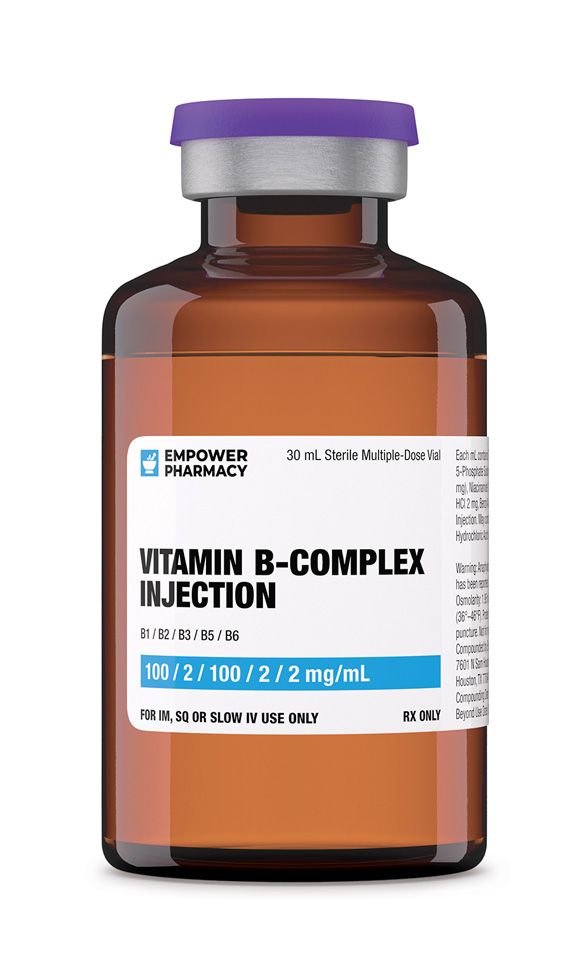Vitamin B - Complex - 6 months
$225.00
In stock
Product Details
Composition of Each 30 mL Vial: Per ml
Vitamin B1 (Thiamine Hydrochloride): 100 mg
Vitamin B2 (Riboflavin-5-Phosphate Sodium): 2 mg
Vitamin B3 (Niacinamide): 100 mg
Vitamin B5 (Dexpanthenol): 2 mg
Vitamin B6 (Pyridoxine Hydrochloride): 2 mg
Key Functions and Benefits:
Vitamins B are crucial for several physiological functions including the methylation cycle, DNA synthesis, and the repair and maintenance of phospholipids. They play vital roles in maintaining healthy skin, muscles, brain, and nerve functionality. While each vitamin B has unique benefits, their synergistic effects are essential for overall health.
- Vitamin B1 (Thiamine): Essential for energy metabolism, immune support, and nervous system health. It may help prevent type 2 diabetes, various cardiovascular conditions, and certain neurodegenerative diseases such as Alzheimer’s disease.
- Vitamin B2 (Riboflavin): Acts as a potent antioxidant, crucial for maintaining healthy blood cells and enhancing metabolic processes.
- Vitamin B3 (Niacin): Supports the functioning of the nervous and digestive systems, energy production, and the metabolism of fatty acids. It also promotes healthy skin, nails, and hair.
- Vitamin B5 (Pantothenic Acid): Vital for the development of the central nervous system, involved in energy production, and aids in synthesizing amino acids, blood cells, vitamin D3, and other fatty acids.
- Vitamin B6 (Pyridoxine): Influential in the synthesis of neurotransmitters, vital for mental health and immune function. It also plays a role in the metabolism of amino acids and the folate cycle, which is critical in preventing anaemia.
Clinical Insight:
Epidemiological studies suggest that standard dosages of vitamin B typically address only marginal deficiencies. There may be additional health benefits from doses higher than those recommended by standard dietary allowances.
Dosing Information:
Typical administration involves a 1 ml intramuscular injection every 1-2 weeks. Please follow specific instructions provided by your healthcare providers, such as Dr. Petersen or Dr. Carlson.
Save this product for later
Vitamin B - Complex - 6 months
Display prices in:USD
